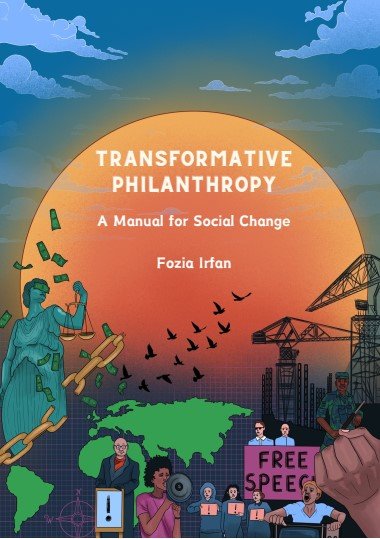Why Philanthropy Matters is delighted to host a new report from Fozia Irfan, Transformative Philanthropy: A Manual for Social Change.
By Fozia Irfan
Can philanthropy in the UK do better? This is the question I went to the US with on a Churchill Fellowship, and I returned with the answer: that we have no choice, we must. We absolutely must.

Institutional philanthropy has the unmatched power, resources, and agency to improve the lives of communities in the UK; and with any funding we place into the public sphere, we have a responsibility to ensure it does no harm and that it is effective. With my Churchill Fellowship, I was privileged to meet some of the most powerful and ambitious funders and changemakers in the US and witness how they implemented their vision and values, in a way which was profoundly humbling and moving.
Day after day, I sat with these unapologetically bold and brilliant, philanthropy practitioners and questioned them about their philosophy, their methodology, their grantmaking and their aims – my Churchill report is an attempt to capture and share that wisdom with practitioners here in the UK.

This is not a traditional Churchill report as it is not just a verbatim record of what I was told, it is instead an attempt to pick out the key ingredients of success and build a new model of philanthropy, which is transformational, hence the title ‘Transformative Philanthropy’. This is an explicit Manual for Social Change, rather than an academic report and together with the accompanying Workbook, I have attempted to make this work accessible and practical for implementation. I hope you the reader, feel inspired to start these conversations within your organisation and also to build on this prototype.
The critical issues facing our communities are too important and the need too urgent, to continue to carry out philanthropy in an ad hoc approach – we need to have a cohesive and ambitious vison, a focus on social justice and greater boldness in our aims.
This is my call to action to philanthropy practitioners to see philanthropy as more than a transactional act of giving, and see it instead as a profound catalyst for social change.

